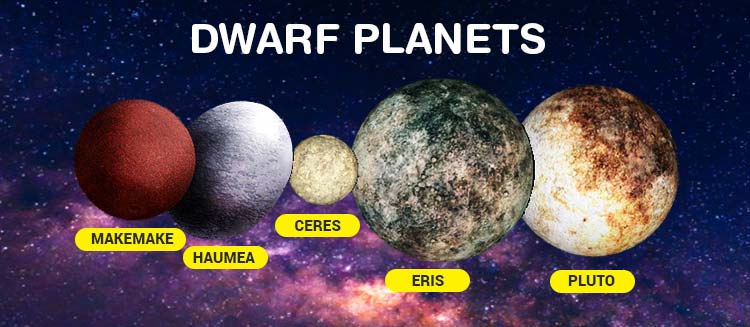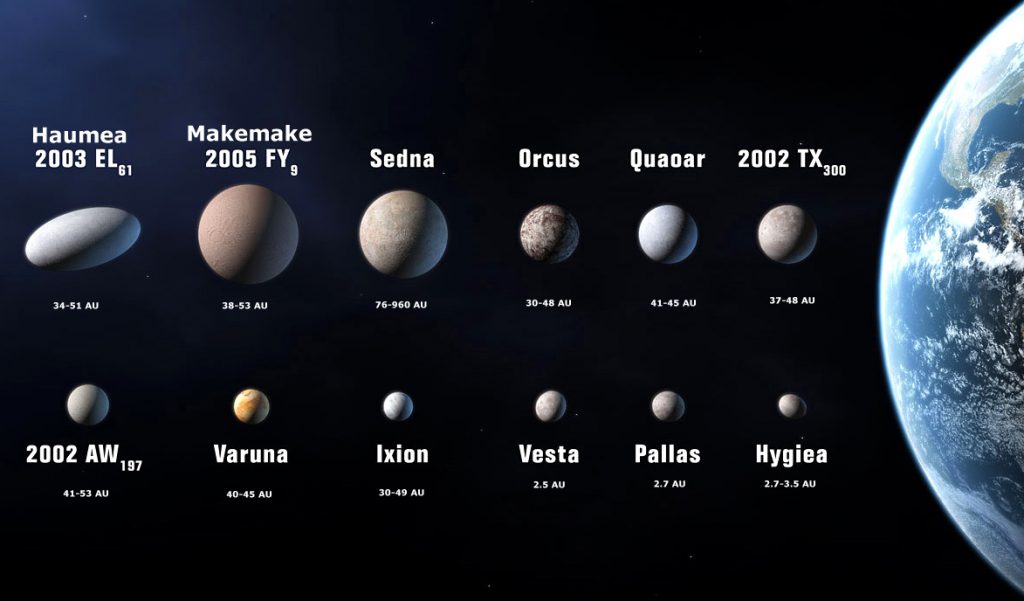“The Universe is expanding.” That’s Alvy Singer’s response to a psychologist asking why he’s depressed, in the 1977 classic film Annie Hall. “What is that your business?!?” his exasperated mother screams; and we laugh.
Well, astrologers aren’t laughing anymore. Since 2002, when Mike Brown and his team of astronomers at the Palo Alta Observatory Lab at CalTech discovered a tenth planet, Eris, astrologers have been scrambling to keep up with the proliferation of dwarf planets that have been discovered or reclassified—and it IS our business.

It’s an astrological tenet that with every planetary discovery, some new shift in societal consciousness occurs; and correlations are made based on empirical data. Uranus, the first planet detected beyond the scope of human vision, was named for the God of Greek mythology who overthrew his father, Saturn (theretofore the outer edge of the observable Solar System). Uranus, located in 1781 with the aid of a telescope, is associated both with new technology and with rebelliousness; later individuality, eccentricity, and a certain cranky independence were added to the list of Uranian traits. This discovery coincided with two revolutions (American and French) and the understanding that lightning was electricity.
Neptune was discovered in 1846. It is associated with psychic vision and universal compassion, as well as art, music, religion, drugs, medicine, spiritualism, and deception—in short, it covers anything which alters mundane reality, for good or for ill. Neptune’s discovery heralded the rise of “isms”, which ushered in bloody wars fought based on idealistic notions of human transcendence and perfectibility. (Jury’s still out on that one.)
Pluto was discovered in 1930; and is named both for the mythological Lord of the Underworld and for Walt Disney’s dog. It describes mass transformations that occur over long periods of time, as Pluto’s orbit is approximately 248 years; it presides over complete annihilation and total rebirth. Pluto is associated with atomic power, developed around the time of its discovery. (Fun fact: 248 years from 1776 is 2024; so the US is about to have its FIRST Pluto Return.) Pluto was demoted from full-planet status in 2002 (by Mike Brown, in point of fact); and thus the term “dwarf planet” came into popular consciousness.
Fast forward to 2002: planet-finders get naming rights, so Mike Brown, in conjunction with the International Astronomical Union (IAU), called his discovery Eris, named after Pluto’s sister in the Greek pantheon. Eris is the Goddess of Strife, who called out the gods’ hypocrisy and is frequently blamed for the Trojan War; so astrologers associate her with the Warrior Feminine, an archetype which has come into some prominence in the 21st Century.
A lot to take in; and Eris was but the first newcomer to the dwarf-planet scene. These dwarves were always there: we just didn’t know about them. Mike Brown estimates that there are approximately 130 probable candidates that he and his team are investigating. (One of them is even called Snow White.)
Astrologers have a lot of work to do: it’s not your mother’s Solar System anymore.

